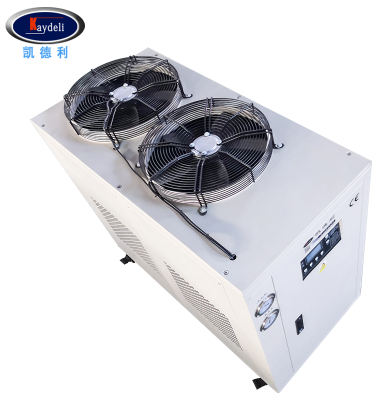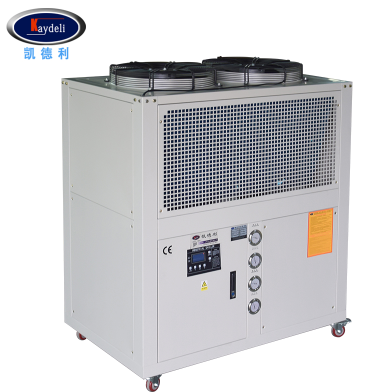We offer you 100% custom-made service Inquiry
Oil cooled chillers are also known as oil chillers or oil coolers. These coolers are process chillers, specifically designed and used to keep oils used for machine tools cool and other oil cooling functions. Some of these oils include hydraulic oil and lubricating oils.
Their oil cooling capacity differs from the normal freezers that are often used in homes. Their capacity ranges from 5-62 kilowatts, while their temperature is within 7℃ to 45℃.
These oil-cooled chillers play a very enhancing role in the industry. Machines used in the industry often get heated up after working for long hours. This makes them produce a humongous amount of heat, which if not checkmated could lead to great damage.
These oil cooled chillers provide a refrigeration system that cools these industrial machines for effective performance. Against this backdrop, it becomes very important that these oil cooled chillers are well maintained.
Below are a few tips that are quite helpful in the maintenance of these oil chillers.

The cooled oil chillers have various parameters that should be monitored daily to ensure their continuous effective performance. These parameters include temperature, flow rates, pressure, fluid levels and others.
These parameters should be monitored and recorded on daily basis to detect abnormalities and fixed quite early.
One of the greatest markers of an effective oil-cooled chiller is its ability to transfer heat effortlessly. However, this ability is dependent on how the tubes of the chillers.
Due to constant use, impurities such as mud, algae, minerals and other contaminants are likely to clog the condenser tubes. These tubes should be brushed periodically to keep them clear from all forms of impurities.
For an oil cooled chiller to work effectively, the level of refrigerant passing through the compressor at all times should be adequate. To keep up with the requirement of the chiller, refrigerant leaks should be avoided.
Also, extra air and moisture should be prevented from finding their way into oil cooled chiller. Anything that undermines the refrigerant charge levels stresses the entire system and drastically reduces the efficiency of the cooling system.
Biological growth in condenser water that is exposed leads to undesirable outcomes in cooling systems. These include corrosion, scale, and foulness that greatly impedes heat transfers, and tube and piping efficiency.
This should be mitigated, to do this, water loops should be monitored regularly using remote means and then treated to enhance water quality.

This is very important as it helps you to know the exact time to change your compressor oil. Proper examination of the compressor oil is done via chemical analysis in the laboratory.
The analyser looks out for high moisture content, low-pressure levels as well as abnormal oil charges. Once these abnormalities are detected, it indicates it is time to change the compressor oil.
Analysing your compressor oil periodically is very helpful in minimizing further maintenance costs, and keeping your oil cooled chiller in good shape.
Getting the best from your oil cooled chiller entails adequate maintenance, the above tips will surely be helpful. For more enquiries about your oil cooled chiller, do not hesitate to reach out to us.
By continuing to use the site you agree to our privacy policy Terms and Conditions.